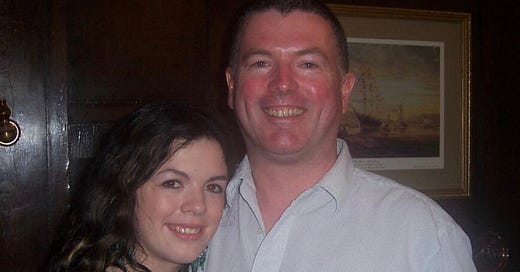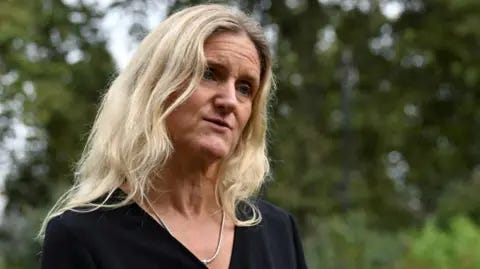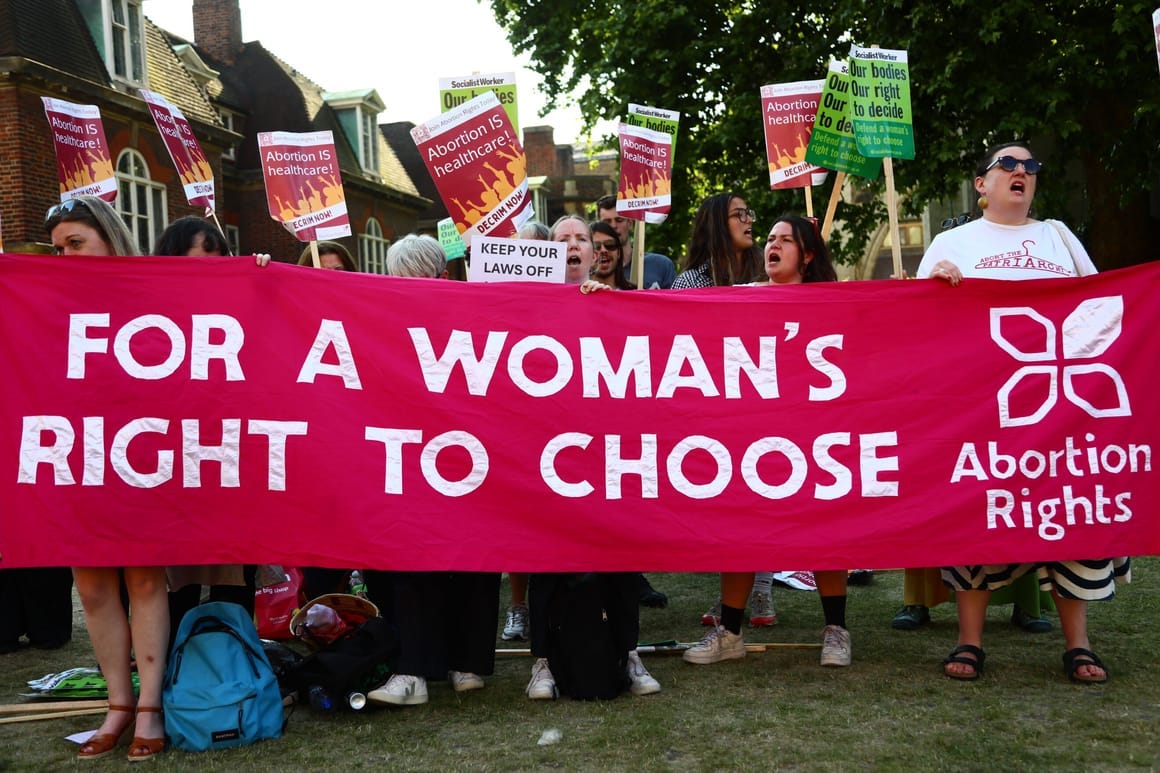When I was 15, a doctor broke the news that I’d never have children due to early menopause, a condition so rare, affecting only one in 100,000 girls my age, that years later, a new GP doubted my story until my medical records arrived. I came to terms with it fairly quickly, but every so often, sadness washes over me, especially when I see life treated as disposable. The UK’s new law, passed on 17 June 2025, removing penalties for abortion under the 1861 Offences Against the Person Act, and the proposed assisted suicide bill deeply trouble me. I’m not wholly opposed to abortion; I understand it may be necessary in dire cases, such as when a mother’s life is at risk. But these laws feel vulnerable to manipulation by those with sinister motives, like the ones behind the Plandemic or discussing depopulation at the Bilderberg meeting. There’s a great deal of evil in this world, often cloaked in the guise of kindness, equality, safety, or educating people to make the world better. I’ve long believed we’re caught in a battle between good and evil, and supporting these laws, even with good intentions, risks aiding those who seek to undermine life’s sanctity.
(Me and my lovely Dad - circa 2004.)
That day at 15, learning I’d never be a mother, was a strange moment. Early menopause, or premature ovarian failure, is almost unheard of in teenagers, typically linked to genetic issues or medical treatments, but mine had no clear cause. When a new GP later expressed disbelief, only accepting it once my records appeared, it underscored how unusual my case was. I’ve largely accepted my infertility, but certain stories stir that old pain, like accounts of lives discarded through abortion or the concept of assisted suicide. These make me feel we’re in a moral crisis, where the value of life, so precious to me because of my loss, is fading. I don’t think abortion is always wrong. If a pregnancy endangers a woman’s life or involves severe foetal abnormalities, I see why it’s a difficult decision that might be necessary. But the casual dismissal of life, and the risk that these laws are being exploited by those with dark intentions, all while presented as compassion or progress, haunts me.
The new abortion law allows women to end pregnancies without legal consequences, even beyond 24 weeks, and the assisted suicide bill would permit terminally ill adults to choose death with medical and court approval. Both seem open to abuse. I’ve read about young people in Canada and Europe, in their 20s, opting for assisted dying over depression, abandoning hope when they might have found a way forward. This echoes the Plandemic, where control was masked as concern for our safety. The Georgia Guidestones, a peculiar monument in America, bore the inscription, “Maintain humanity under 500,000,000 in perpetual balance with nature,” a call to reduce the world’s population by over 90%. Combined with Bilderberg’s reported talks on depopulation, it’s hard not to suspect these laws are part of a sinister agenda, dressed up as kindness to improve the world, fueling a struggle where evil gains ground.
This abortion law means women face no prosecution for ending their pregnancies, even outside the 1967 Abortion Act, which allows abortions up to 24 weeks with medical approval or later for serious conditions. The assisted suicide bill, proposed by Kim Leadbeater, would allow adults with less than six months to live to end their lives with legal and medical oversight. Supporters argue these laws uphold autonomy, freeing women from outdated criminalisation and offering dignity to those in unbearable pain, all in the name of equality and compassion. I understand the appeal, but I’m deeply concerned about how these could be twisted by those with hidden motives, cloaked in rhetoric about fairness and safety. The Plandemic showed how those in power can manipulate trust, introducing measures that seemed protective but felt like control to many. Reports that Bilderberg, a secretive gathering of global elites, discussed depopulation heighten my unease. The Guidestones’ demand to keep humanity below 500 million, implying billions gone, feels like a plan for something grim, presented as environmental care. These laws could be tools to reduce lives under the guise of choice. Even those supporting them, believing they’re championing women’s rights or easing suffering, might unwittingly aid a dark scheme. The abortion law’s lack of penalties for late-term abortions and the assisted suicide bill’s potential to include mental health cases, as seen in Canada, suggest a world where life is deemed disposable. I’m troubled that these could be exploited by the wrong people, turning freedom into coercion while claiming it’s for our good.
In some UK communities, particularly those with South Asian heritage, a preference for sons can lead families to pressure women into aborting female foetuses, rooted in traditions where boys carry the family name or provide financial support, while girls are sometimes viewed as a burden. As someone who would have cherished any child, the idea of a life ended because it’s a girl breaks my heart. The new law, by removing legal risks, could make such coercion easier, possibly driving women to unsafe backstreet abortions using unregulated drugs or unqualified practitioners, risking bleeding, infections, or worse, as health experts warn. The assisted suicide bill raises similar fears. In Canada, where assisted dying includes mental illness, young people have chosen death over depression, indicating a society deciding which lives matter. If the UK follows this path, vulnerable people, whether disabled, depressed, or elderly, might feel pressured to choose death, especially if those in power frame it as compassionate. Both laws encourage a mindset where some lives are valued more, a disturbing shift in this moral battle. The Guidestones’ call for a 500-million population amplifies this concern, suggesting a future where some are seen as surplus, sold as equality or progress. This notion of selecting who lives, whether a female foetus or a struggling young person, clashes with my belief that every life holds equal worth.
At the medical centre where I worked, a young woman repeatedly sought referrals to a Marie Stopes clinic, her nonchalant attitude towards abortion shocking me. She treated it like a routine task, a stark contrast to my longing for a child. This memory resurfaced during a Facebook argument with someone from the “freedom community,” who threw “I thought you were all about my body, my choice” at me to defend abortion. I countered that choosing a vaccine affects one person, but aborting a baby at full term, like a woman who performed a backstreet abortion at 32 weeks to conceal an affair, ends another life. Those who claim “that just won’t happen” are proven wrong by such cases. Stories of women pressured to abort foetuses with Down’s syndrome hurt just as much. Some mothers report doctors persistently suggesting termination, even after refusals, as if the child’s life wasn’t worth living. This medical pressure, rooted in outdated views on disability, mirrors the young woman’s carelessness. The abortion law’s lack of oversight for self-managed abortions could lead women, influenced by doctors or family, to dangerous backstreet methods, putting their own lives at risk, all pitched as empowerment. The assisted suicide bill might normalise death as a solution for mental health struggles, as seen in Canada and Europe, where young people are lost to despair rather than supported, framed as compassionate choice. Both laws foster a culture that treats life as optional, feeding a dark agenda masked as kindness and education. That young woman’s attitude and the doctors’ insistence feel like two sides of a world straying from what I value about life. The Guidestones’ call to slash humanity’s numbers reinforces the sense that this isn’t random; it’s planned, hidden behind talk of a better world.
Depopulation, once dismissed as a wild theory, feels increasingly plausible. The Plandemic revealed how crises can be exploited to tighten control, and Bilderberg’s focus on population reduction aligns with these laws’ risks. The Georgia Guidestones, before their destruction in 2022, stood as a stark declaration, their first guideline demanding humanity stay below 500 million, a number implying billions gone. This wasn’t mere art; it felt like a blueprint for those who view people as numbers to manage, cloaked in talk of environmental balance. With the threat of a looming World War 3, their depopulation agenda might soon be in full swing. Let’s hope, for all our sakes, this doesn’t come to pass. The abortion law, allowing late-term abortions without penalty, and the assisted suicide bill, which could extend to mental health cases, might be parts of a machine to shrink humanity under the cover of freedom. Those supporting these laws, aiming to protect women or ease suffering, could be aiding those with sinister goals, caught in a scheme where life is the casualty, sold as equality and safety. As society decays, and cultures are getting absorbed into each other with crime at a record high in the UK, this all points to a world drifting from valuing life to seeing it as expendable, dressed up as progress. I’m okay with abortion in rare, desperate cases, but giving unchecked power to those with bad intentions is too far. The risk that these laws could drive depopulation or control, backed by the Guidestones’ chilling words, global events, and the shadow of World War 3, is a warning I can’t ignore. Even those with good hearts might be drawn into supporting policies that serve a darker purpose, presented as education for a better world, which is why we must stay vigilant and question everything.
The risk of these laws being twisted by madmen, from the Plandemic’s control to Bilderberg’s population talks, feels like a demonic force. The Georgia Guidestones’ push to keep humanity below 500 million, and the threat of World War 3 accelerating their depopulation plans, drive home what’s at stake, masked as kindness and equality. Let’s pray this doesn’t happen, for everyone’s sake. Even if you support these laws with good intentions, you might be aiding the wrong side, falling for promises of safety and progress. I’m holding out for a world that cherishes life, standing firm against those with dark plans in this relentless battle between good and evil.
I’d rather eat my own socks than put a begging bowl out and so instead I’ve snuck a Buy Me a Coffee link https://buymeacoffee.com/charlotteemmauk in here for anyone who fancies tossing a bit of love my way.
Charlotte
P.S. Skint like me? I hear ya. A share or a quick “I enjoyed this article” is worth its weight in gold. Ta! xx 😘








I feel saddened that you had to face a life of infertility at such a young age.
Most girls/ women just presume that they’ll have children one day and it’s taken for granted in most cases.
Now the abortion bill has passed, I fear the same will happen with the assisted suicide bill.
That Kim Leadbeater is an evil psychopath, as are all who gladly vote for these bills to pass.
She said that talking someone out of killing themselves is ‘coercion’.
She has no idea how that feels to be a mother, bereaved by suicide.
I’m almost certain that she’s never been in discussions with them either.
I worry what it also means for the 1961 suicide act and what changes will be made.
The whole thing is deeply distressing 😩💔
Agree Charlotte, I am shocked by this, apparently the final outcome could be an amendment in the House of Lords. 🙏.
This woman Tonia Antoniazzi MP, like Kim Leadbetter seem to come from nowhere to push horrific laws.
Tonia Antoniazzi actually talks about a moral imperative, you couldn't make this evil shit up.